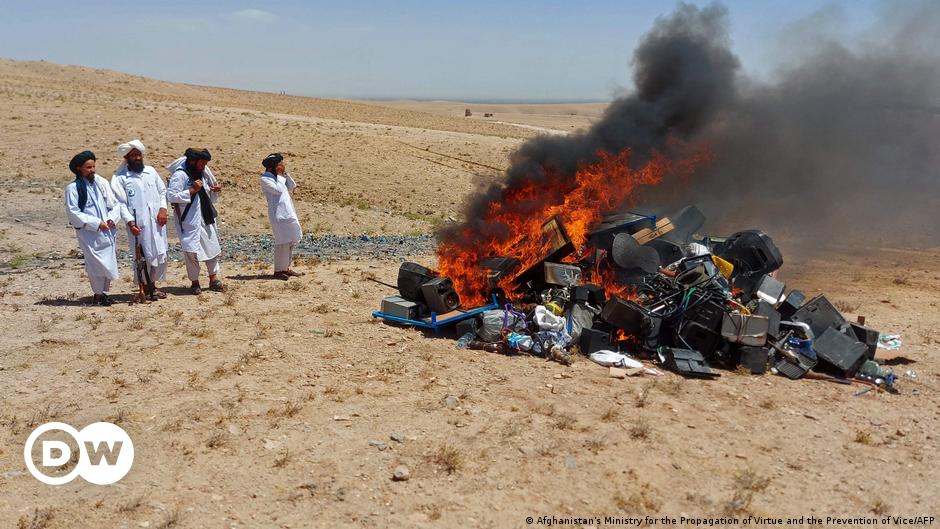Taliban’s religious police reportedly burned a number of musical instruments in the western province of Herat, according to a Sunday report by the state-run news agency Bakhtar.
Sheikh Aziz al-Rahman al-Muhajir, the provincial head of the Ministry of Promotion of Virtue and the Prevention of Vice, said music led to “misguidance of the youth and the destruction of society,” according to the report.
People could be corrupted, according to the official. The Taliban banned nonreligious music the last time it ruled the country in the 1990s.
Pictures show officials gathered around a fire with musical instruments, including guitars, harmoniums and speakers. A pile of musical instruments burn as the Taliban imposes new restrictions on music

Afghanistan has a strong musical tradition, influenced by Iranian and Indian classical music.
It also has a thriving pop music scene, adding electronic instruments and dance beats to more traditional rhythms.
Both flourished in the past 20 years before the Taliban stormed to power in 2021.
But the Taliban has imposed harsh measures since seizing control of Afghanistan in August 2021 as US and NATO forces withdrew.
Students and teachers of the Afghanistan National Institute of Music, which was once famous for its inclusiveness, have not returned to classes since the Taliban takeover. Many musicians have also fled the country.
Taliban’s crackdown on women’s rights
The Taliban promised a more moderate rule than that of their previous time in power in the 1990s. They had promised to allow for women’s and minority rights. But instead, they reintroduced harsh measures in line with their strict interpretation of Islamic law, or Sharia.
They have carried out public executions, banned education for girls beyond the sixth grade and also banned women from most forms of employment.
Earlier this week, the Taliban announced that all beauty salons ought to be closed because they offered services forbidden by Islam and caused economic hardship for the families of grooms during wedding festivities.



I agree but can you share more history or a source? I work in a school and some members of my community opt out of music for religious reasons which I think is BS and a totally extreme view. I don’t think it is in the Quran bit someone told me it is in the hadith.